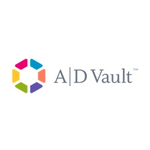Maryland State Legislature Applauded for Recent Bill That Creates a National Model for Electronic Accessibility of Advance Care Planning Documents
DALLAS–(BUSINESS WIRE)–#advancecare–Affirming that “the future of advance care planning is here,” ADVault’s Senior Vice President of Innovation and External Affairs Maria D. Moen told a recent gathering of healthcare executives that “electronically-stored and fully accessible advance healthcare decision documents is a key strategy for reducing billions of dollars of waste in US health care caused by overtreatment or low-value care.”
Moen made her remarks before a meeting of the Hospice & Palliative Care Network of Maryland. Maryland’s state legislature recently unanimously approved a bill that will set a national model for increasing completion rates and improving electronic accessibility to advance care planning documents.
Speaking in support of the legislation, Moen noted that ACP documents are “one of the last paper-based relics of healthcare, do not move with the person during care transitions and are frequently not readily accessible when needed.” She said COVID “brought a sense of urgency to the topic as many people in need of care were unable to verbalize their healthcare goals, preferences, and priorities themselves and did not have a healthcare advocate at their side. COVID-19 has moved digital health innovations from a nice-to-have to a need-to-have.”
According to Moen, electronic advance care planning documents that are fully accessible at point of care delivery not only enable honoring a patient’s wishes but can save the healthcare system meaningful dollars. “The average annual spending in the last year of life is $82,000 and that is driven by aggressive care that may not even be wanted, such as life-sustaining treatments,” she said. “A study reported by JAMA in 2019 found that the annual cost of waste in US health care spending for overtreatment or low-value care was $75.7 billion – $101.2 billion. Advance care directives can help address this misuse.”
In describing the steps needed to operationalize digital advance care planning, Moen encouraged attendees to engage their staff to work with patients to define and document their wishes, noting that “any time a patient receives care inconsistent with their goals or values, quality and compliance are impacted.” But while documenting preferences and priorities is important, Moen said, “if they aren’t readily accessible and can’t easily be found by team members and emergency responders when needed, then we’ve not fulfilled the promise of ACP.”
Moen noted that many organizations across the country are working hard to expand the ability for digital advance care planning documents to be accessible at the point of care. Among those taking the lead is the state of Maryland whose new legislation requires the adoption of several measures to increase public awareness of the importance of and facilitate digital access to advance care planning documents, such as advance directives. This legislation encourages Marylanders to complete the forms and provide them electronically so they are available when needed, making it more likely that people’s end-of-life wishes will be honored.
“While end-of-life care is a subject many of us avoid, we need to recognize that we are the first generation in human history that can have some say about how, when and where we die,” said Moen. “Fortunately, technology solutions available today allow each of us to think that through, to document our wishes and to securely store them in a way that they are seamlessly available electronically to hospitals and doctors across the continuum of care, 24 hours a day, 7 days a week.”
A 25+ year veteran in Long-Term and Post-Acute Care leadership, Moen is at the forefront of safeguarding the voice of the patient and supporting providers in the seamless delivery of advance care planning documents and portable medical orders at all points of care. In her role at ADVault, Moen advocates for the innovative use of technology to improve patient outcomes, reduce clinical burnout, and increase operating efficiency for everyone in the healthcare industry. She leads the HL7® FHIR® standards project creating the implementation guides for data exchange of advance directive, advance care plan, and portable medical order information. In late 2021 she was honored as an Interoperability Hero by DirectTrust, a non-profit healthcare industry alliance that recognizes those organizations, teams, and individuals integral to advancing interoperability.
About ADVault, Inc.
ADVault, Inc. built upon its award-winning, free MyDirectives® application to develop the world’s first and only HITRUST certified, interoperable, affordable, end-to-end SaaS solution suite for advance care planning (ACP). Healthcare providers and payers use MyDirectives tools to create and upload ACP documents and portable medical orders and then store advance directive information in the ADVault Exchange™ for easy anytime, anywhere query, retrieval, and sharing. Automatic ACP activity tracking provides time and activity reporting for ACP compliance and program performance metrics. Visit www.advaultinc.com.
Contacts
Cindy Davis
469-238-2858 ext. 201
cdavis@advaultinc.com


